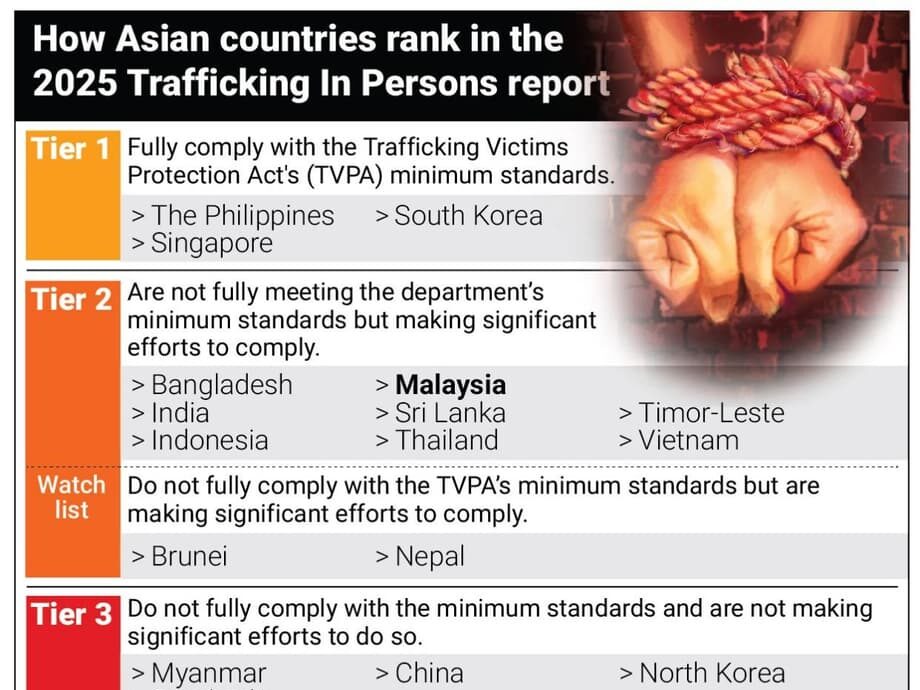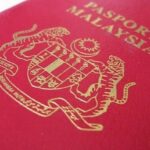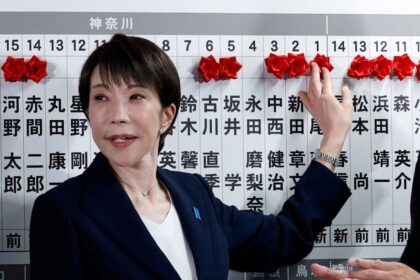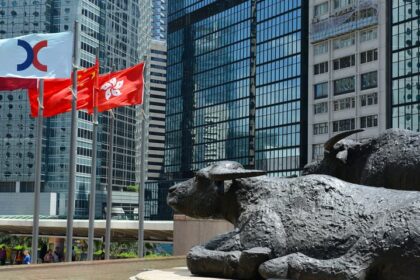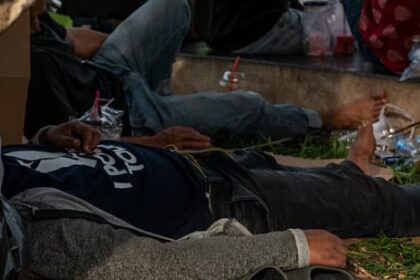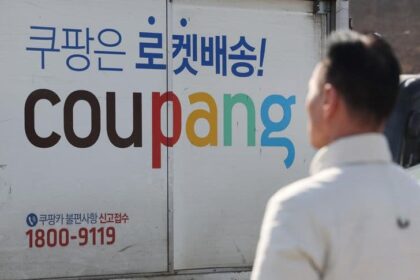Why pressure to reform is mounting
Malaysia is again facing sharp scrutiny over how it recruits, manages, and protects foreign workers. Civil society groups say the system leaves too many workers exposed to forced labour, debt bondage, and wage theft. Their message is direct: the country needs a comprehensive overhaul of recruitment and protection policies, stronger enforcement against syndicates, and a shift toward victim first procedures when trafficking is suspected. The debate has intensified after Malaysia kept a Tier 2 ranking in the 2025 Trafficking in Persons Report, a sign of progress but also a reminder that serious gaps remain in prevention, protection, and prosecution.
- Why pressure to reform is mounting
- What civil society wants to change
- What the government has changed this year
- Where recruitment too often goes wrong
- Wages, housing, and wage protection
- Health coverage and the reality inside clinics
- Enforcement, prosecution, and victim identification
- Employer concerns about costs and compliance
- Global supply chain pressure and company responses
- Data, inspections, and the case for a single law
- Where policy meets principle
- Key Points
Foreign labour powers critical parts of the economy, especially manufacturing, electronics, plantations, and construction. The country relies on a steady flow of workers from across Asia. Many workers use recruiters and brokers who operate across borders, a system that can be abused through hidden fees, forged documents, and false job promises. When oversight is weak and multiple agencies hold overlapping responsibilities, accountability can slip, and exploitation becomes harder to detect.
Human rights groups also point to a persistent problem: victims of trafficking are often treated as immigration offenders. Workers found without proper permits, or those who flee abusive conditions, may face detention or deportation before being assessed as possible victims. Advocates argue that this practice lets perpetrators hide in the shadows while workers take the blame. They want clear screening protocols, dedicated shelters, and legal support so victims can safely report crimes, receive services, and participate in investigations without fear of punishment.
What Tier 2 means
A Tier 2 ranking means the government does not fully meet the Trafficking Victims Protection Act minimum standards but is making significant efforts to do so. It reflects active policies, plans, and enforcement steps, yet confirms that legal protections and on the ground practice still fall short. Moving upward requires better results in investigations and convictions of traffickers, victim identification, and effective prevention. Remaining at Tier 2, year after year, raises questions about execution and consistency.
What civil society wants to change
Advocates call for a single, clear law that governs every stage of a foreign worker’s journey, from recruitment in the country of origin to workplace rights, housing, grievance channels, and safe return. A dedicated statute, they argue, would close loopholes that allow forged documents, quota manipulation, and illegal fees to persist. It would also align responsibilities across ministries, regulators, and enforcement bodies, and make it easier to act against syndicates that profit from opaque processes.
One proposal is to consolidate recruitment and foreign worker management under the Human Resources Ministry. Proponents say that labour issues should be led by the agency with the most direct responsibility for workplace standards, inspections, and dispute resolution. Doing so would also help separate immigration control from labour rights, which is seen as crucial for spotting trafficking indicators early and treating potential victims with the care they need.
What the government has changed this year
The government has moved some parts of the system toward better control and transparency. A joint committee of the Home Affairs Ministry and the Human Resources Ministry announced reforms that target end of employment procedures and mobility in the labour market. Employers must now be physically present at international exit points when their workers leave the country, matching the requirement that employers be present at entry. The aim is to deter abandonment, resolve outstanding wages or disputes before departure, and create a clear record at the border.
Authorities also approved cross sector transfers for foreign workers, subject to approval. This change loosens a rigid rule that previously tied a worker to a single sector unless a rare exemption was granted. Better mobility can reduce the likelihood that workers remain stuck with an abusive employer simply to retain legal status. It also gives employers more flexibility to fill vacancies without relying on new recruitment that may carry higher risks of abuse and delays.
Longer term policy tracks
The Human Resources Ministry has signalled that worker protection is a rights issue and a national interest. The ministry has also spoken about a multi tier levy where employers that rely more heavily on foreign labour would pay a higher rate. Revenue from that levy would support investment in automation and training, with the aim of reducing dependence on low wage labour over time. Debate continues about how fast to implement such changes and how to calibrate them so that small and medium sized firms can adapt.
The government is also moving to strengthen social protection. Social Security Organisation coverage for documented migrant workers has expanded, replacing the older compensation scheme, and legislation for 24 hour protection has been prepared for debate in Parliament. If fully implemented, coverage would better reflect modern work patterns and risks beyond office hours.
Where recruitment too often goes wrong
Many exploitation cases start before a worker even arrives in Malaysia. Recruiters and brokers in origin countries sometimes charge high fees for job placement, medical tests, or travel. In many instances, additional costs appear after arrival, deducted from wages or withheld as debt repayment. These debt burdens push workers to accept abusive conditions because quitting or reporting wrongdoing can leave them in deeper financial trouble.
Opaque quota systems and document fraud create more openings for abuse. Unscrupulous brokers have been accused of forging approvals or gaming allocations, then passing fake costs to workers. When detection is weak, syndicates can operate for long stretches, moving workers through complex networks that hide who is making money and who is accountable. Civil society groups argue that end to end digital systems, transparent quotas, and licensed, audited recruiters are essential. Rigorous screening of applications and real time data sharing between agencies would make it harder to forge approvals or mislabel victims as offenders.
Wages, housing, and wage protection
Nonpayment of wages, underpayment, or illegal deductions are central complaints from migrant workers. The International Labour Organization has a project in Malaysia that supports wage protection and cross border wage claims, with a focus on manufacturing, electronics, and plantations. Training helps workers calculate wages and file claims, and cooperation with unions and civil society has expanded support in areas with high concentrations of migrant labour, including Sabah and Sarawak.
Better wage protection means more than monthly pay slips. Workers need accessible complaint channels, protection from retaliation, and clear steps to recover unpaid wages even after they return home. Governments in both origin and destination countries must coordinate on cross border claims, because many cases only surface after a worker has left. Digital tools can make this easier, but they require consistent data input from employers and enforcement agencies and fast access to information for workers.
Housing standards matter as well. Overcrowding or unsafe dormitories are linked to health risks and social tension. Amendments to housing laws in recent years expanded minimum standards and increased employer accountability for accommodation. These rules are effective only if inspections are regular, workers can report problems without fear, and penalties for violators are applied.
Health coverage and the reality inside clinics
Malaysia’s health system has expanded social security and insurance schemes to documented migrant workers, yet significant barriers persist in practice. Many workers and employers still lack clear information about enrolment and entitlements. Public hospital fees for non citizens are higher than for locals, and insurance coverage has not always kept pace with fee changes. Confusion about benefits and complex claim procedures can discourage care seeking, which leads to delayed treatment and worse outcomes.
The situation around tuberculosis shows how health and immigration rules can collide. TB treatment is free for everyone, including foreign workers, and the Ministry of Health has extended services into more areas to improve access. Even so, undocumented workers often avoid clinics for fear of enforcement. During screening, workers who test positive can also face rigid rules that do not distinguish well between active disease and latent infection. In cases of latent TB, a person is not contagious and can be treated while continuing to work. If permit renewal is blocked without a proper clinical assessment, workers may choose to hide rather than seek treatment. Health experts propose clearer protocols that separate active disease from latent infection, confirm cases through secondary testing, and protect workers’ legal status during treatment.
Decoupling basic health access from immigration penalties is a common recommendation. When workers know they can seek care safely, outbreaks are easier to manage and workplaces are healthier. Stronger coordination between the Immigration Department, the health ministry, screening providers, and labour authorities can align public health goals with worker protection so no one is forced to choose between health and a job.
Enforcement, prosecution, and victim identification
Malaysia has laws against trafficking, but advocates say more consistent enforcement is needed at the top of the chain. High level cases involving document forgers, recruiters, or company officials rarely move from investigation to conviction. Successful cases require well trained investigators, specialised prosecutors, and reliable testimony from victims who feel safe to cooperate. That means secure shelters, interpreters, legal aid, and a temporary right to work so people can support themselves while cases proceed.
Misclassification remains a major barrier. When a worker without papers is treated only as an immigration violation, the opportunity to screen for trafficking indicators is lost. Standardised screening protocols at police stations, border checkpoints, hospitals, and labour offices can help. Officers need practical training on what to ask, how to identify red flags like withholding of passports or recruitment debt, and where to refer potential victims. Regular audits of case handling can identify where victims are falling through the cracks.
Employer concerns about costs and compliance
Industry groups warn that new protections will fail if businesses cannot sustain the cost. Small and medium sized firms face tight margins and rising compliance demands. Some employers argue that insurance, housing upgrades, health coverage, and new social security contributions should be shared across government, employers, and workers rather than placed entirely on companies. They worry that heavy one sided costs could push hiring into informal channels, which harms both workers and law abiding employers.
Policy makers are exploring ways to share responsibility. One option is a levy that rises with the scale of foreign worker use, with proceeds placed into a publicly managed fund for worker welfare, inspections, and automation support. Another is a clear set of mandatory and optional benefits, phased in over time, with transparent guidance on claims and reimbursements so firms are not exposed to unclear or retrospective liabilities. The guiding principle is simple: firms that depend most on foreign labour should shoulder more of the cost, yet the rules must be practical enough to promote compliance.
Global supply chain pressure and company responses
International buyers and border agencies are using trade leverage to press for cleaner supply chains. Several Malaysian manufacturers have faced import bans or withhold release orders linked to suspected forced labour. In response, some companies have reimbursed recruitment fees to workers, refurbished dormitories, and adopted equal pay policies for local and foreign staff. One glove maker pledged to align pay and benefits for foreign workers with locals, raised minimum pay, and invested in living condition upgrades after a United States import ban.
These corporate shifts show how global standards can accelerate change. Buyers now require detailed due diligence, independent audits, and proof that recruitment is fee free for workers. Firms that cannot document clean hiring, decent housing, and grievance channels risk losing access to markets. For Malaysia, aligning national policies with these expectations protects workers and preserves the competitiveness of export industries.
Data, inspections, and the case for a single law
Experts argue that a dedicated foreign worker law would set out a unified system for recruitment, documentation, wage protection, housing, healthcare access, dispute resolution, and safe return. It would define the roles of each agency, establish service standards, and set penalties for noncompliance. A single statute would also clarify data sharing and case management, creating an accurate, updated register of foreign workers, employers, and recruiters. With that baseline, inspections can be targeted, wage claims can be tracked across borders, and migrants can access services without navigating conflicting rules.
Practical features could include standard contracts in multiple languages, zero recruitment fee rules, bonded accounts for wage deposits, digital attendance and payroll to prevent fraud, mandatory passport return policies, and sanctioned recruiter lists published online. Health protocols would separate clinical decisions from immigration status and create safe pathways to treatment. Victim services would be written into law with clear funding, so survivors can access shelter, counselling, work rights during case proceedings, and legal aid. Public reporting would list enforcement actions, including charges against recruiters or officials involved in document fraud and quota manipulation.
Partnerships that can work
Lasting progress depends on cooperation across government, industries, unions, and civil society. Programmes supported by international partners have already helped workers calculate wages, file claims, and seek redress. Training for labour inspectors, police, and health workers can improve identification of abuses. Employers can join with unions and non profits to create safe complaint channels and to monitor on site conditions. When workers are informed and empowered, abuse is easier to detect and fix.
Where policy meets principle
The government has framed the protection of migrant workers as a question of basic rights and dignity. In public remarks, the Human Resources Minister has said that safeguarding migrants cannot be reduced to box ticking against international rules, and that the system must treat all workers with fairness. That stance aligns with reforms on mobility, social protection, and the broader goal of reducing heavy dependence on low wage foreign labour through better skills and technology.
Stronger laws and procedures will only matter if they translate into safer recruitment, fair wages, decent housing, accessible healthcare, and effective enforcement. With sustained effort and real accountability for wrongdoing, Malaysia can protect workers and maintain a resilient economy that competes on quality, not on low labour standards.
Key Points
- Malaysia kept a Tier 2 ranking in the 2025 Trafficking in Persons Report, signaling progress but continuing gaps in prevention, protection, and prosecution.
- Civil society groups want a single law to govern foreign worker recruitment, rights, housing, health access, and return, with clear penalties for fraud and abuse.
- Advocates urge consolidation of recruitment oversight under the Human Resources Ministry to align labour rights with enforcement and inspections.
- New measures require employers to be present at exit points and allow cross sector transfers for workers, improving oversight and mobility.
- Authorities are preparing broader social protection, including expanded social security coverage and 24 hour protection proposals.
- ILO supported programmes are helping workers pursue wage claims and strengthening wage protection in key sectors.
- Healthcare access remains uneven; experts call for protocols that distinguish active TB from latent infection and protect legal status during treatment.
- Employer groups ask for shared responsibility on protection costs and clearer rules to avoid pushing hiring into informal channels.
- Global buyers and border agencies are pressing for clean supply chains; several Malaysian firms have overhauled policies after import bans linked to forced labour risks.
- A unified data system and standard contracts, zero fee recruitment, and public reporting on enforcement are central to lasting reform.


